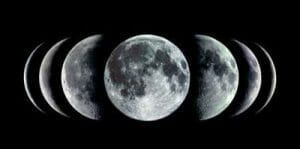
Dr. Sushil Dubey M.D (Hom)
This question has haunted every homoeopathic physician ever since this great legendary observation of Dr.Boger was proposed. Dr. Boger discovered in his observations that there have been specific times when the specific remedies had peculiar aggravation times or amelioration times. He at the same moment also observed, that the periods of modalities are very frequently related to the moon phases. He noticed that the remedies as well as the patients both showed periods of aggravation or ameliorations in a very definite relation to the lunar movements.
As a student of science faculty let us take a brief understanding what effect does lunar movement causes on this planet and on the living beings inhabiting this globe.
The key to understanding here is the relationship between the motion of our planet and the Moon and Sun. As the Earth spins on its own axis, ocean water is kept at equal levels around the planet by the Earth’s gravity pulling inward and centrifugal force pushing outward. However, the Moon’s gravitational forces are strong enough to disrupt this balance by accelerating the water towards the Moon. The gravitational force of the moon is one ten-millionth that of earth.
This causes the water to ‘bulge.’ As the Moon orbits our planet and as the Earth rotates, the bulge also moves. The areas of the Earth where the bulging occurs experience high tide, and the other areas are subject to a low tide.
Water on the opposite side of Earth facing away from the Moon also bulges outward (high tide), but for a different and interesting reason: in reality, the Moon and the Earth revolve together around a common gravitational center between them, or center of mass.
The same forces are at play as the Earth revolves around the Sun. The Sun’s gravity pulls ocean water toward the Sun, but at the same time, the centrifugal force of the combined Earth-Sun revolution causes water on the opposite side of Earth to bulge away from the Sun. However, the effect is smaller than the Moon, even given the greater mass of the Sun (greater mass means greater gravitational force). Why? Simply because The Sun is so far away — over 380 times farther away from the Earth than the Moon. And also, the sun’s gravitational force on the earth is only 46 percent that of the moon. Making moon the single most important factor for the creation of tides. One interesting thing to observe is these lunar movements have their most effect on the sea water or saltwater bodies. That is because the Sodium Chloride or say Salts dissolved in water in huge amount.
By weight, the average human adult male is approximately 55%-75% water. However, there can be considerable variation in body water percentage based on a number of factors like age, health, weight, and sex. In a large study of adults of all ages and both sexes, the adult human body averaged ~65% water. The Human body comprises of the Intercellular and Extracellular fluids. The intracellular fluid (ICF) or cytoplasmic matrix is the liquid found inside cells. The concentrations of ions such as sodium and potassium are different in the ICF than in the extracellular fluid; these differences in ion levels are important in processes such asosmoregulation, cell signaling, and the generation of action potentials in excitable cells such as endocrine, nerve and muscle cells.
Extracellular fluid (ECF) or extracellular fluid volume (ECFV) usually denotes all body fluid outside of the cells. The major constituents are Sodium, Potassium, Calcium, Chloride, Hydrogen Carbonate, etc. Extracellular fluid, in conjunction with intracellular fluid, helps control the movement of water and electrolytes throughout the body. In order to maintain osmotic balance, the extracellular compartments of a mammal’s body must be able to excrete and absorb water to and from the environment. Inorganic ions must also be exchanged between ECF and the external environment to maintain homeostasis.
The lunar phases have its effect on these Anions and Cations present in the ICF and ECF. It causes them to undergo shift of the water molecules from ICF to ECF by altering the osmotic pressure between the two compartments and effecting Osmosis.
The moon’s gravitational pull can affect the flow of fluid in the human body. Thus fabricating aggravations and ameliorations to the patient’s disease symptoms depending upon the individual sensitivity and reactivity.
The research, published in the journal Current Biology, examined the sleep patterns of 33 volunteers.
Scans taken when the moon was full showed a reduction of 30 per cent in brain activity related to deep sleep. Participants took five minutes longer than normal to fall asleep.
On average they slept for 20 minutes less when compared with the rest of the month, and their sleep was poorer. The researchers also found that, volunteers had a lower level of melatonin, the hormone which regulates sleep cycles.
Researchers also believe that this phenomenon is down to the ‘circalunar clock’, which ticks away according to the moon’s cycle. The research also suggests that the Circalunar Clock works at molecular levels in the brain and possibly at the Hypothalamus, the same part that regulates Circadian Rhythm.

Very deep findings. Very helpful for physicians and patients.
What is the remedy for this? …….
What is the remedy for this? I have a friend who has been suffering for the past almost 35 years.
Silicea,prime medicine.